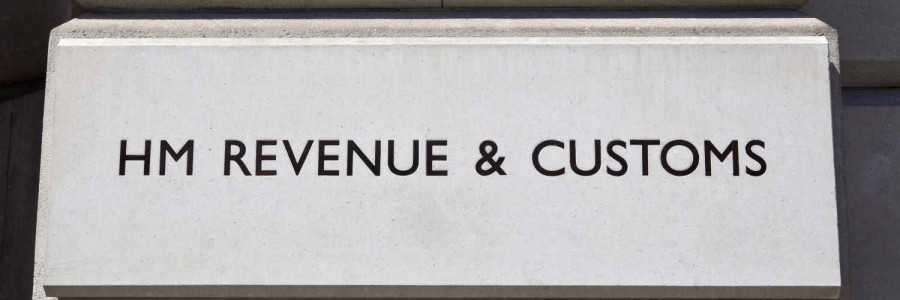22 years in our tax practice has taught me a few things about effective communication with my former colleagues in HMRC. It has also left me almost bald, from tearing my hair out when contact goes wrong. So let me make things easier for you.
Recently I had an unsatisfactory call to an HMRC officer, and what happened when I asked for the supervisor beggared belief! I was so shocked that I obtained the recording of the exchange (for how, see later) and posted it on YouTube. Suggest you listen from 5:05 on the following link http://tinyurl.com/HMRC-hangsup
So from years of experience here are 10 tips to having an effective contact with HMRC.
1. NERVOUS ON PHONE? THEN WRITE. If you are nervous on the phone to the government, or might get flustered, then writing might be easier. Then you have time to digest their written response. Or show it to a friend. Put your National Insurance number on the letter and write to the office which contacted you recently, otherwise to:
HM Revenue & Customs
Pay As You Earn
PO Box 1970
Liverpool
L75 1WX
I still write to HMRC to sort a lot of things out. My copy is a record of what was said, when and where I sent it.
2. PHONING HMRC. They are open 8 to 8 weekdays and 8 to 4pm on Saturdays. Call them on 0300 200 0300. If you can avoid the lunch hour and just after 9am you will find the waiting time on the phone shorter. Try calling at 815am, in the evening, or Saturday. ALWAYS, but always, write down the time and date of the call. Then the name of the person you spoke to, then what was agreed would happen.
3. EMAIL? HMRC is still very nervous about email and they don't publish email addresses for contacting them. Having said that they do have an email service for telling them a change of name or address. It is at http://www.hmrc.gov.uk/individuals/change-of-circs.htm
If your tax code for the present year may be wrong then you can contact them by email on http://www.hmrc.gov.uk/incometax/email-taxcode-wrong.htm
Take a screenprint BEFORE you hit submit, because after that you just get a message saying we have your message. No reference number, no proof of what you said.
4. ACCOUNTANTS – AGENT PRIORITY NUMBER – accountants and tax consultants can use a special number to contact HMRC which means they will rarely sit in a queue. I won't publish it here, because if a member of the public uses it they will not get helped.
5. GET A RECORDING OF YOUR CALL? If you think HMRC didn't do what they promised, or an officer behaved badly, then you may be able to get an audio recording of the whole call. This is free and is done under Freedom of Information. You will need to know the number you phoned and the date and time. The application is easy and is at http://tinyurl.com/HMRC-FOI When I applied this way the reply and CD was back inside two weeks – impressive.
6. WHEN NOTHING IS DONE? If you ring HMRC and nothing is done within say 3 weeks of the call, then consider a complaint. If you wrote a letter then best allow 5 weeks before complaining. Sometimes phoning to ask what's happening can work, but I tend to favour a written complaint. Mark the top of the letter COMPLAINT. Details on complaints at http://www.hmrc.gov.uk/complaints-appeals/how-to-complain/make-complaint.htm If you still have problems then complain to your MP at:
House of Commons
London
SW1A 0AA
MPs get a priority service which often helps resolve things.
7. CAN AN ACCOUNTANT COMPLAIN FOR ME? Yes, and, once a second attempt to get HMRC to sort something has failed, they have a special service to use. It is called the Agents' Issue Resolution Service. I have had mixed results using this service, but your accountant should give it a go. They may not know about it.
8. COMPLAINING ON SOCIAL MEDIA. Increasingly people make complaints about companies and organisations via social media. Twitter can be good as someone in the PR department often monitors tweets which paint the organisation in a bad light. I have seen no sign of this causing HMRC to spring into life, but if you want a go then mention in your tweet @HMRCgovUK If you have a juicy case of incompetence, or hardship caused, you could always contact the national press, like the Daily Mail or BBC Radio 4's Money Box.
9. CAN I JUST CALL IN AT THE TAX OFFICE? No. In its drive to 'improve' customer service, HMRC has closed all its public enquiry offices! Yes, it's hard to believe. HMRC says that in some (probably extreme) cases they may do house calls. I reckon you would need to be very elderly or very infirm, but if you would like a home visit then ask them.
10. HOW DOES HMRC WANT ME TO CONTACT THEM? Really they want everyone to get their tax information from the website www.hrmc.go.uk And where that's not enough they want you to phone. They would prefer not to receive letters – but don't let that put you off sending one!
Don't be scared of contacting HMRC. They genuinely do want to help, and most things can be sorted first time around. My tips above also show what to do if things go wrong.
Adrian Huston, a former Tax Inspector, is a director of tax consultancy Huston & Co, www.Huston.co.uk or 028 9080 6080. Twitter @HustonTax



